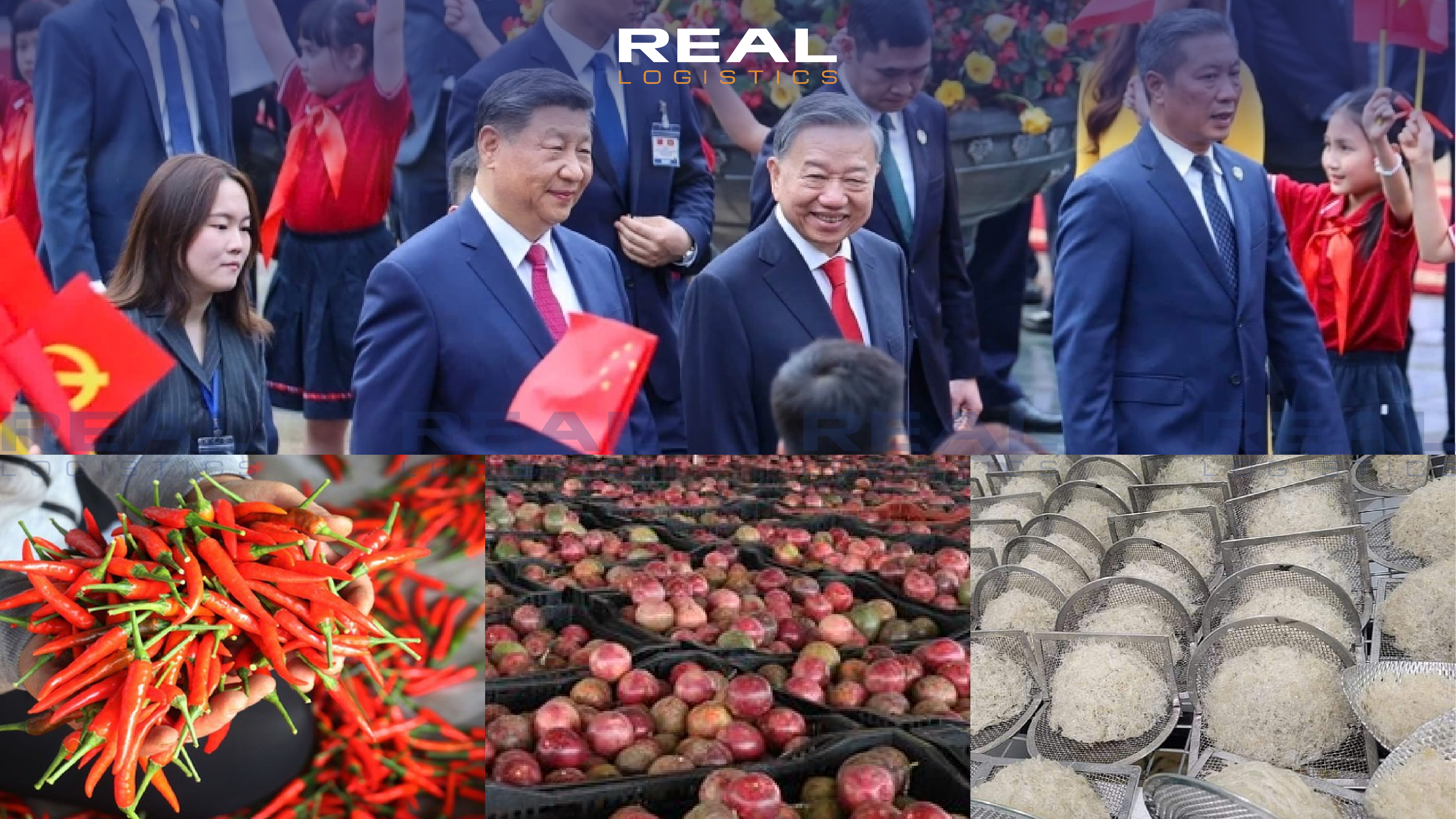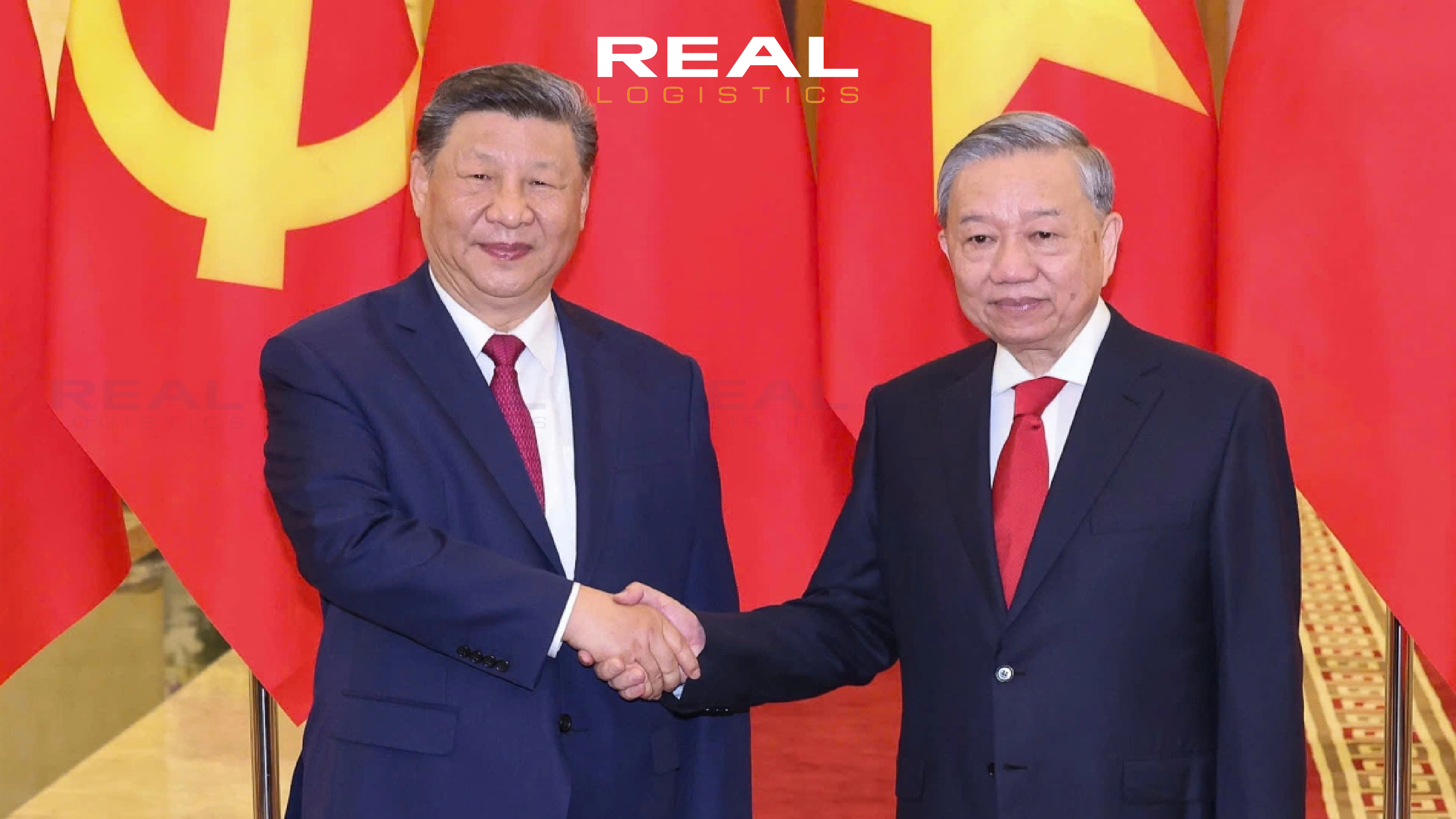Vietnam Exports Chili, Passion Fruit, and Bird’s Nest Officially to China

1. Protocol Signed: Vietnam’s Agricultural Goods Gain Access to China’s Official Channels
On April 14–15, 2025, during the official state visit of Chinese President Xi Jinping to Vietnam, both countries issued a Joint Statement and signed a new protocol that permits the official export (formal trade) of several agricultural commodities from Vietnam to China, including:
- Chili peppers
- Passion fruit
- Unprocessed and refined edible bird’s nest
- Rice bran
These goods now join a growing list of Vietnamese agricultural products cleared for formal trade into China - the world’s largest consumer market.
Bird’s nest, in particular, represents a lucrative opportunity. China consumes over 300 tons of bird’s nests annually, accounting for nearly 80% of the global market. The new protocol outlines strict health and safety standards, traceability, and quality control mechanisms for Vietnamese producers and exporters to meet.
2. Facilitating Smart Border Trade and Seamless Customs Clearance
The protocol includes commitments to modernize and optimize cross-border logistics, notably through:
- Construction of “smart ports” and intelligent customs clearance systems at key border gates, starting with Huu Nghi (Vietnam) – Youyi Guan (China)
- Potential expansion of these systems to other major crossings such as Mong Cai – Dongxing
- Enhancements in “soft connectivity” including e-customs integration and digital documentation systems
- Support for establishing Vietnam Trade Promotion Offices in strategic Chinese locations such as Haikou (Hainan)
These efforts aim to reduce clearance time, decongest border gates, and boost throughput across land ports.
Vietnam’s geographical advantage also plays a key role:
- Over 1,450 km of shared land and river border with China
- Proximity of production zones to major Chinese wholesale markets (hundreds of kilometers), resulting in lower logistics costs and faster delivery than many competing nations

3. Real Logistics’ Role in Optimizing Border Supply Chains
The growing integration between Vietnam and China offers new momentum for businesses engaged in agricultural trade, cold chain logistics, and cross-border e-commerce.
Real Logistics brings over 16 years of experience in:
- Customs clearance and regulatory compliance at northern border gates
- Cross-border trucking, cold chain transport, and short-distance delivery to Chinese hubs
- Coordinating with Chinese importers and wholesale markets
- Real-time shipment tracking, risk mitigation, and bilingual customer service
As Vietnam diversifies its agricultural export portfolio and enters China’s official channels, Real Logistics provides end-to-end support, helping clients align operations with evolving trade protocols.
4. Agricultural Trade Expansion: Broader Policy Frameworks at Play
This bilateral cooperation is also underpinned by:
- Multilateral trade agreements such as ASEAN–China FTA and RCEP
- Vietnam’s support for China’s accession to CPTPP, contingent on compliance with CPTPP standards
- Enhanced collaboration in green development, digital economy, infrastructure connectivity (rail, expressways, airports)
Notably, both sides are exploring standard-gauge rail connections, integrated air cargo operations, and potential cooperation in commercial aviation and aircraft technology.
5. Conclusion: A Landmark Moment for Vietnam’s Export Economy
The signing of this protocol signals a major breakthrough for Vietnamese agricultural producers. Formal trade routes to China not only provide volume and value, but also impose higher compliance and logistics demands.
To remain competitive, Vietnamese exporters must:
- Embrace traceability, food safety, and packaging standards
- Build logistics networks that support cold storage, quick turnaround, and last-mile delivery in China
Partner with experienced logistics providers like Real Logistics, who understand both the policy and practical dimensions of Vietnam–China cross-border trade
—————————————
Real Logistics Co.,Ltd
👉 Facebook: Real Logistics Co.,Ltd
☎️ Hotline: 028.3636.3888 | 0936.386.352
📩 Email: info@reallogistics.vn | han@reallogistics.vn
🏡 Address: 39 - 41 B4, An Loi Dong, Thu Duc, HCM City
51 Quan Nhan, Nhan Chinh, Thanh Xuan, Ha Noi City

